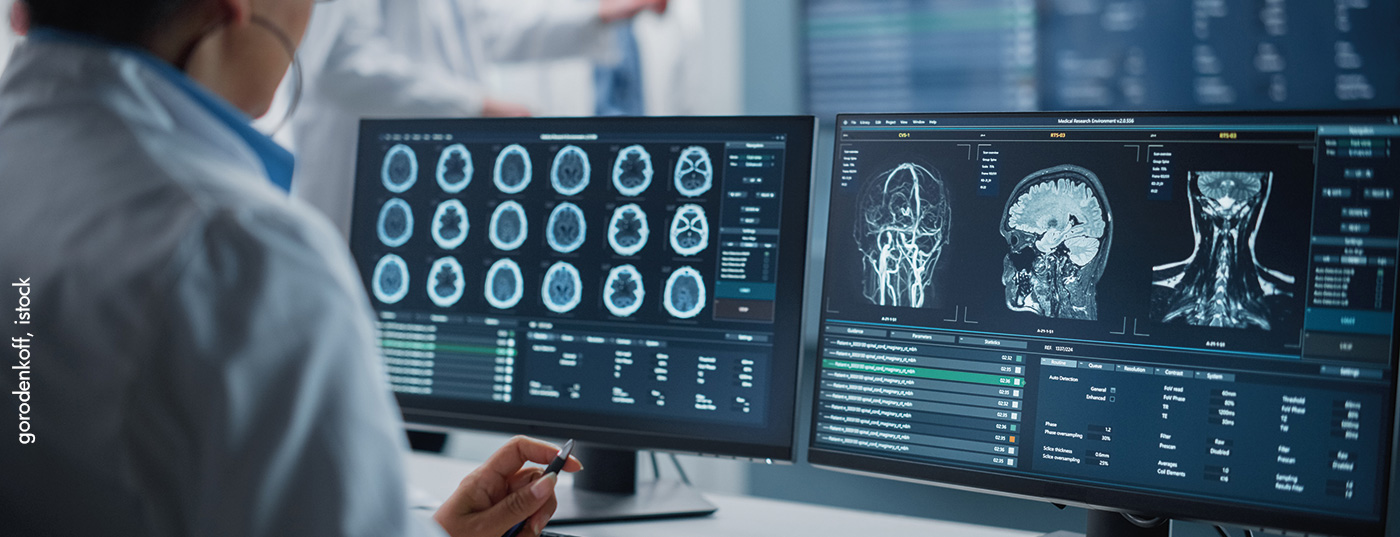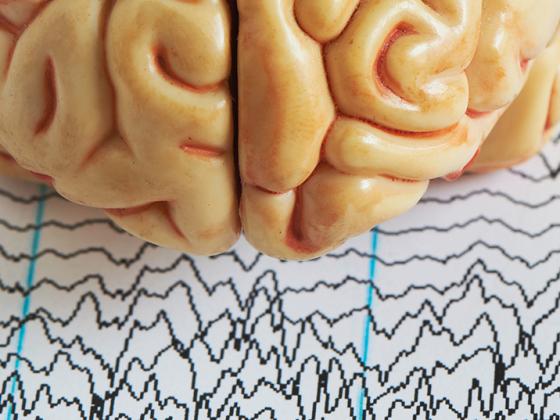Representatives from neurology, psychiatry and pharmacy met for the first time at the Berlin Brain Summit for an interdisciplinary summit on brain diseases. The aim of the inter-professional exchange was to lay a stable foundation for sustainable care of patients with brain diseases and to be able to quickly apply current scientific findings in daily routine.
Five of the ten diseases with a high burden of disease and premature death belong to diseases of the brain. A major challenge for society and medicine. However, research does not stand still and new findings are constantly maturing into new treatment strategies. In the case of Alzheimer’s disease, the focus is therefore on slowing disease progression, no longer solely on alleviating neuro-psychiatric symptoms. This is made possible by new preparations that intervene in the pathomechanism of the disease. The focus here is primarily on the amyloid plaques and tau fibrils typical of Alzheimer’s disease. However, inhibition of certain kinases and promotion of energy supply to neurons are also therapeutic possibilities that are currently under scrutiny in phase III trials [1].
As a further aspect, early diagnostics was examined in more detail. Conventional dementia diagnostics cannot detect early stages of AD with sufficient certainty to target preventive therapeutic approaches. Here, studies have shown that CSF biomarkers may be useful to identify incipient AD in patients with mild cognitive impairment (MCI). According to a study from Sweden, patients with AD-typical biomarker patterns in CSF (quotient Abeta 42/40, total tau and phospho-tau 181) and mild cognitive impairment have a risk of about 90% to develop AD within the next years. In addition, amyloid PET, known as Pittsburgh Compound-B (PIB), can visualize typical histopathological changes such as amyloid deposits [2].
Focus on depression management
One possible correlation that researchers are always concerned about is that between depression and stress. Swedish researchers have now been able to detect a protein in the brain that appears to be important both for the function of serotonin, which is involved in mood regulation, and for the release of stress hormones [3]. The p11 protein may play an important role in the hitherto unknown mechanism of chronification of stress and development of depression, as well as for the inadequate stress response of depressed patients. In the mouse model, it was shown that p11 expression is reduced in the brain and can be increased by the administration of antidepressants. For the first time, the researchers also demonstrated an effect of p11 on the release of cortisone, adrenaline and noradrenaline. Mice deficient in p11 responded more strongly to stress.
The schizophrenic patient
Schizophrenia is one of the most severe mental illnesses and is relatively common, with a prevalence of approximately 1% of the global population. In almost a quarter of patients, after successful treatment, there remains only one psychotic episode in a lifetime and mental health can be fully restored. Accordingly, however, this is not the case for over 75% of those affected. After phases of (almost) complete remission, you may experience repeated relapses – sometimes with significant residual symptoms with cognitive and social impairments. The development of antipsychotics with a favorable efficacy/side-effect profile was the first requirement for effective treatment management. There is international consensus that the risk of recurrence can only be sustainably reduced by a combination of medicinal, psychotherapeutic and psychosocial measures. However, the side effect spectrum is particularly relevant for good adherence. This is because in schizophrenia patients, adverse events are closely associated with medication non-adherence. Prevention, detection, and effective management of drug-related adverse events are therefore important. Second-generation antipsychotics (SGAs) initiated a gradual shift away from paternalistic treatment of SMI symptoms toward a patient-centered approach that emphasized the goals important to patients-psychosocial functioning, quality of life, and recovery. There is evidence that SGAs have a better safety and tolerability profile compared with first-generation antipsychotics. The incidence of treatment-related extrapyramidal side effects is lower, and impairment of cognitive function and treatment-related negative symptoms occur less frequently. This has significantly increased the chances of maintaining or restoring everyday functionality and quality of life in schizophrenic patients.
Congress: Berlin Brain Summit
Literature:
- www.vfa.de/de/arzneimittel-forschung/woran-wir-forschen/neue-alzheimer-medikamente-in-entwicklung.html (last accessed 08.08.2022)
- www.berlin-brain-summit.de/publikationen/artikel-und-beitraege/diagnose-der-alzheimer-demenz.html (last accessed 08.08.2022)
- Sousa VC, Mantas I, Stroth N, et al: P11 deficiency increases stress reactivity along with HPA axis and autonomic hyperresponsiveness. Mol Psychiatry 2021; 26:3253-3265.
- www.berlin-brain-summit.de/publikationen/artikel-und-beitraege/schizophrenie.html (last accessed 08.08.2022)
InFo NEUROLOGY & PSYCHIATRY 2022; 20(3): 24.











